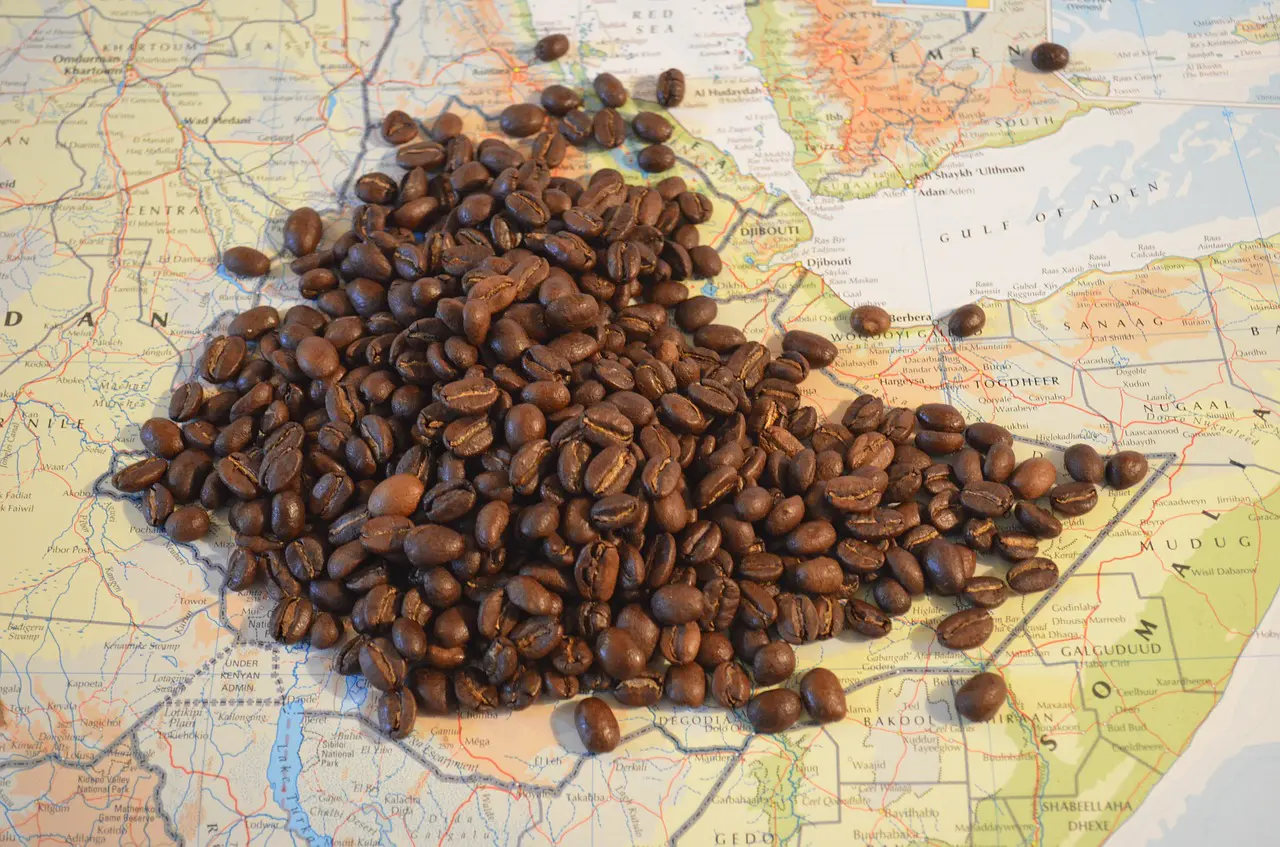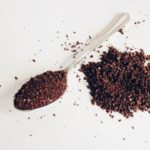While we often associated addiction with tobacco and alcohol amongst other substances, almost anything can become addictive, given time. And coffee is no exception, due to the fact it contains caffeine. Caffeine is the most widely used legal addictive substance in the world.
There are dozens of reasons why people become addicted to substances or behavior. In the case of caffeine, it’s a socially acceptable substance, at least in small amounts; it’s easily obtainable, and it’s relatively inexpensive. Just think how many social events center around a cup of coffee: first dates, breakroom interludes, church and community meetings…the list is almost endless.
What Is Caffeine Withdrawal?
Like any addictive substance, if you have been taking in more caffeine than you should, there may come a point when you decide to go “cold turkey” and give it up for the good of your health.
It’s not advisable, however, to consider this an “all or nothing” approach. Just like dieting, you’re likely to get better results if you adopt a gradual, step-by-step method. But what is caffeine withdrawal, anyway?
Caffeine withdrawal syndrome is what doctors might call a “clinically relevant entity”. All of the features that make it such an enticing substance, like the stimulation of our central nervous systems and the fact that caffeine can improve performance, work in reverse if we’ve become addicted.
Caffeine is absorbed very quickly into our bloodstreams, and within around 30 to 45 minutes, it’s at peak levels in our blood.
The more caffeine you typically ingest, the worse your symptoms are likely to be if and when you decide to give it up. And while we mainly associate caffeine with coffee, tea, and to some extent, chocolate, it’s also present in energy drinks, some cereals and ice creams, and even some painkillers.
Giving up caffeine, however, is not usually associated with some of the socially destructive behaviors that can accompany giving up other addictive substances. For this reason, many doctors refer to caffeine addiction as caffeine dependence.
Caffeine Withdrawal Symptoms
Caffeine is often popular with those who suffer from headaches and migraines and can help to relieve their symptoms. Caffeine is a substance that can, quickly and easily, cross the blood/brain barrier. Here, it narrows the blood vessels. As the blood vessels contract, blood flow reduces, with one side effect being reduced pain.
One of the main symptoms of caffeine withdrawal is fatigue. Anxiety and irritability are also common, as well as low mood, finding it difficult to concentrate, drowsiness, and even flu-like symptoms. The fatigue and drowsiness occur because of the effect of caffeine on adenosine, which is a neurotransmitter that helps us prepare for sleep.

Verywell / Jessica Olah
The low mood that can accompany giving up caffeine is also due to neurotransmitters, in this case, dopamine, glutamate, and norepinephrine. While studies have shown that caffeine does not necessarily increase dopamine in our brains, it does increase the receptiveness of our brain to this particular substance.
Since dopamine is responsible for pleasure centers in the brain amongst other things, it’s not surprising that some of us might experience a slight high after we enjoy a cup of coffee, or cola, or hot chocolate.
Stomach and digestive issues can also occur in caffeine withdrawal. These might include constipation, diarrhea, nausea and stomach pains. Some individuals experience heartburn, a particular type of indigestion.
Since coffee is one of the most common drinks in the world, with up to 90 percent of adults in the United States of America alone drinking at least one cup a day, caffeine withdrawal may be more widespread than many of us realize.
So the next time you’ve got a headache, or your stomach is a little upset, or you can’t concentrate, just think back on when you last had a cup of coffee.
Caffeine Withdrawal Headaches
Headaches are the most common overall symptoms of caffeine withdrawal. While caffeine can trigger migraines for some, other sufferers will tell you that they find it helps with their headaches.
If you’d rather not take an over the counter headache preparation, you can also try a couple of drops of peppermint or spearmint oil on a tissue, in a burner or diffuser, or diluted in a carrier oil to avoid any risk of burning and applied to your temples. Other options to relieve your headache include ice packs.
If you do opt for the over the counter remedies, remember to check the ingredients list, or ask your pharmacist. Many medications include caffeine, and the same applies to some prescribed medicines too.

How Long Does Caffeine Withdrawal Last?
With almost eight billion people on the planet (and rising every second), there are always going to be exceptions to the rule, and everyone reacts to substances in their diet slightly differently.
For most regular caffeine consumers, however, if they suddenly give up caffeine completely, withdrawal symptoms can set in quickly. This may be as soon as 12 hours after your last cup of coffee or medication containing caffeine.
Since your body metabolizes coffee very quickly, it follows that you will feel the effects of lack of caffeine very quickly too. Depending on how high your caffeine consumption levels have been, you might continue to experience withdrawal symptoms for the next two to nine days.
Continuing a little further down the caffeine withdrawal timeline, the caffeine withdrawal duration can last a few weeks for some people. In extreme cases, recovery may even take a couple of months in total.
How To Reduce Caffeine Withdrawal Symptoms?
Whether you should give up caffeine entirely, and not just reduce the amount in your diet, or the frequency of intake is something only you can decide. Assuming, however, that you’re firmly set on giving up caffeine entirely, what is the safest way to quit caffeine?
Experts agree, slow and gentle is the way to go. If you drink several cups of coffee a day, start by switching some of them to decaffeinated drinks. Remember that many sodas, even the non-cola flavored varieties, are often surprisingly high in caffeine. Water and herbal tea make excellent non-caffeinated alternatives and have the advantage of keeping you hydrated.
Is Caffeine Harmful Or Helpful?
It might sound a little strange that, for many of the symptoms listed above, such as digestive issues, caffeine can both cause them and alleviate them. So much depends, however, on the amount of caffeine you’re ingesting. While a small amount of caffeine daily is beneficial, large amounts can have just the opposite effect.
Those who drink coffee or other caffeinated beverages extremely regularly might also find that they start to experience coffee withdrawal symptoms if their access to the substance is restricted.
And if you’re wondering about drinks that are “decaffeinated”, even quitting those can result in signs of coffee withdrawal for some. It is worth pointing out, however, that the scientists who carried out one recent experiment weren’t sure how much was down to the power of suggestion.
The health benefits of a couple of cups of coffee a day have been demonstrated with increasing frequency in recent years, as researchers have started to take caffeine seriously.
When institutions of the likes of Harvard Medical School and the World Health Organization are starting to accept that coffee is one of the “good guys” in so many ways, we’re not inclined to argue with their findings. Even some homeopaths agree that coffee is not bad for you.
Caffeine Consumption – How Do I Stay Safe?
What is the safe dose of caffeine, anyway, for an adult? Well, the FDA and many other official organizations around the world estimate that four cups of ordinary strength caffeinated coffee per day, or fewer, can be tolerated by most healthy humans with few if any side effects.
For clarification purposes, the average 8 fluid ounce serving of ordinary strength coffee has around 100 mg of caffeine. If you enjoy soft drinks, you might be surprised to learn that even the non-cola drinks can be high in caffeine: while the FDA has put a ceiling on the amount of caffeine in cola and pepper drinks, even a 12 ounce serving of Mountain Dew contains over 50 mg of caffeine. And that’s before we start looking at the amount of sugar in the average serving of soda.
It’s with the energy drinks, however, that the caffeine levels start to soar. A 16-ounce Monster packs 160 mg of caffeine, while an 8.4 ounce Red Bull contains 80 mg. And if you’re taking over the counter medications for cold, flu or headache, just check the labels. Two capsules of the migraine medication Excedrin, for instance, contain 130 mg of caffeine.
Should I Still Drink Coffee?
While a small percentage of coffee drinkers might find the tolerance they have built up to caffeine over the years has a detrimental effect on them if they suddenly stop drinking the fragrant brew, most of us will be fine. In the wider context, ordinary strength coffee is not a caffeine villain.
While it’s a good idea to make sure you don’t drink too much coffee, or, if you are drinking one of the super-strong coffees out there, you don’t indulge too often, coffee continues to be one of life’s affordable little pleasures. And we’re going to continue enjoying it, in all its glorious varieties. So cheers, kanpai, or bottoms up!

Hi my name is Larry, a coffee aficionado from the US. I have already visited Colombia, Sumatra, Guatemala, Costa Rica, Ethiopia and Jamaica in my pursuit of finding the best-tasting coffee beans. I currently write from Bali and enjoy the relaxed life that you can only find in Canggu. Welcome to my coffee world!





